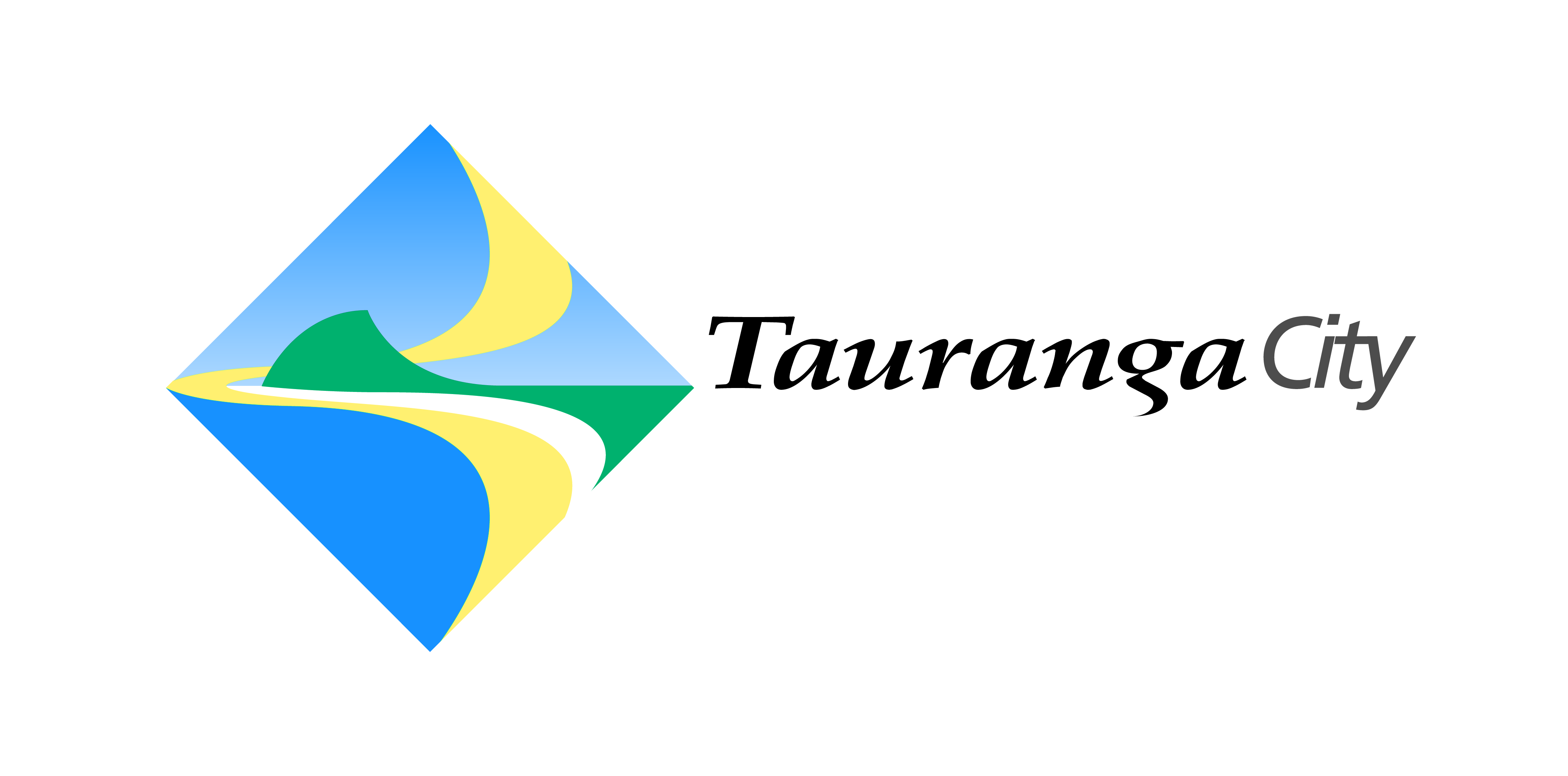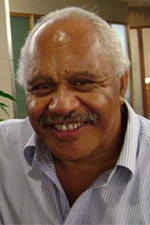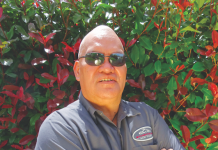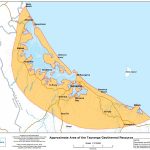The following outcomes are the results from a recent survey of Tauranga City Council election candidates by income equity group Closing the Gap.

Candidates and Responses
Click on the person you would like to hear from:
-
-
-
-
- Andrew Hollis – Mayor, At Large
- Bernie Gillon – At Large
- Buddy Mikaere – At Large
- Caleb Hall – At Large
- Deborah Johnston – Mount Maunganui / Papamoa Ward
- Greg Brownless – Mayor
- Heidi Hughes – At Large
- Hugh E. Robb – At Large
- Jaco Abrie – Otumoetai / Pyes Pa Ward
- John Robson – Mayor, At Large
- Jos Nagels – Mayor
- Kelvin Clout – Mayor, At Large
- Kim Williams – At Large
- Larsen Anna – Te Papa / Welcome Bay Ward
- Rick Curach – At Large
- Pare Taikato – At Large
- Peter Gregson – Mount Maunganui / Papamoa Ward
- Suzi Paige – At Large
- Terry Molloy – Te Papa / Welcome Bay Ward
- Tony Christiansen – At Large
- Waitsu Wu – Te Papa / Welcome Bay Ward
-
-
-
Terry Molloy

Q1 – Inequality
Wealth inequality and income inequality are the two issues of concern although income inequality is more frequently assessed because it is easier to measure.
What is your view of these inequalities in relation to how the organisation you are a candidate for might address them?
Both wealth inequality and income inequality are important issues which need to be addressed by councils Both wealth inequality and income inequality are important issues which need to be addressed by councils
Q2 – Public Transport
Subsidising public transport would help address income inequality by providing cheap/zero cost alternative transport and would address wealth inequality by enabling better access to other public services. It would decrease the number of cars on our roads improving transport for all.
If public transport is subsidised, who do you think should benefit?
Free public transport for all the above at the times specified
Q3 – Living Wage
The living wage (2019) is $21.15/hr and is calculated on a national basis quantifying an hourly wage that a family of four requires to live based on one partner working full time and the other partner working half time. The current minimum wage is $17.70.
How do you think the living wage should be implemented by your council?
Councils should pay their own staff, any CCO (council-controlled organisation) staff, and council contractors’ staff at least the Living Wage
Q4 – Living Wage
Do you think councils should be proactive in promoting the living wage to other organisations in the community?
Yes
Q5 – Social Housing
Social housing is housing owned by councils/govt and rented to tenants.
How much should councils be involved with social housing?
Council should be fully and exclusively involved in social housing Council should be fully and exclusively involved in social housing
Q6 – Community Housing
Community housing is housing provided by the community via whatever mechanisms work for the community and with the object of the housing being eventually owned by the occupiers. The one family, one plot of ground kiwi concept appears to be diminishing and new international trends are emerging in our landscape with community models.
How much should councils be involved with community housing initiatives? (Please select any options you think would work in Tauranga and the Bay of Plenty and/or add your own suggestions in the space for Comments)
Provide ongoing financial and/or other tangible support to housing initiatives such as Housing First
Q7 – Rating System
In 1879 Henry George published Progress and Poverty in which he pointed out that, perversely, poverty increased with increasing progress and that the cause of this was the accumulation of unearned wealth based on increasing value of monopoly ownership of land. His solution was land value tax.
What is your position on progressively moving rates which are currently based on capital value to rates based on land value?
I would support a detailed study of how this would be accomplished and the effects it would have
Q8 – Rating System
Some rating systems (e.g. the Tauranga rating system) include a uniform annual general charge (UAGC) which has the general effect of ratepayers of lower socio-economic status subsidising the unearned wealth accumulation of wealthier ratepayers.
What is your position on phasing out the UAGC where it applies?
I would support a detailed study of how this would be accomplished and the effects it would have.
Q9 – Wellbeing
Improving standards for children, Maori and Pasifika, mental health, infrastructure, and environment are at the heart of Central government’s 2019 Wellbeing Budget.
How can councils support the thrust of Central Government’s budget?
Take a proactive stance by increasing community inclusiveness outside of stipulated areas, eg: approaching groups for project input relevant to them.
Q10 – Knowledge of Council Staff Salaries
Many people are interested to know the range of salaries and wages paid by council as well as the numbers of employees in the various wages and salary bands.
Do you support the regular publication of councils’ wages and salary bands with strict adherence to band width which may identify the income of individual staff members at both the low and high end of the spectrum?
Yes
Back to the menu at top of page
Jaco Abrie

Q1 – Inequality
Wealth inequality and income inequality are the two issues of concern although income inequality is more frequently assessed because it is easier to measure.
What is your view of these inequalities in relation to how the organisation you are a candidate for might address them?
Both wealth inequality and income inequality are important issues which need to be addressed by councils.
Other Comment:
The purpose of council has changed under the Local Government (Community Well-being) Amendment Act 2019. Section 3 (d) has been replaced with “provides for local authorities to play a broad role in promoting the social, economic, environmental, and cultural well-being of their communities, taking a sustainable development approach.”
Q2 – Public Transport
Subsidising public transport would help address income inequality by providing cheap/zero cost alternative transport and would address wealth inequality by enabling better access to other public services. It would decrease the number of cars on our roads improving transport for all.
If public transport is subsidised, who do you think should benefit?
Free public transport for all the above at the times specified.
Q3 – Living Wage
The living wage (2019) is $21.15/hr and is calculated on a national basis quantifying an hourly wage that a family of four requires to live based on one partner working full time and the other partner working half time. The current minimum wage is $17.70.
How do you think the living wage should be implemented by your council?
Councils should pay their own staff, any CCO (council-controlled organisation) staff, and council contractors’ staff at least the Living Wage
Q4 – Living Wage
Do you think councils should be proactive in promoting the living wage to other organisations in the community?
No
Other Comment:
Lead by example. We don’t need to employ a ‘living wage lobby team’ within each council.
Q5 – Social Housing
Social housing is housing owned by councils and rented to tenants.
How much should councils be involved with social housing?
NC
Other Comment:
Support and partner with existing providers to extend their services (if required). Where there are gaps the charitable sector isn’t currently filling, council should partner with central government to fill the gaps. Leaving those with mental illness unable to look after themselves to the streets is not acceptable for a wealthy society. Article 25 of the Universal Declaration of Human Rights (1948): (1) Everyone has the right to a standard of living adequate for the health and well-being of himself and of his family, including food, clothing, housing and medical care and necessary social services, and the right to security in the event of unemployment, sickness, disability, widowhood, old age or other lack of livelihood in circumstances beyond his control.
Q6 – Community Housing
Community housing is housing provided by the community via whatever mechanisms work for the community and with the object of the housing being owned by the occupiers. The one family, one plot of ground kiwi concept appears to be diminishing and new international trends are emerging in our landscape with community models. How much should councils be involved with community housing initiatives? (Please select any options you think would work in Tauranga and the Bay of Plenty and/or add your own suggestions in the space for Comments)
Provide ongoing financial and/or other tangible support to housing initiatives such as Housing First.
Q7 – Rating System
In 1879 Henry George published Progress and Poverty in which he pointed out that, perversely, poverty increased with increasing progress and that the cause of this was the accumulation of unearned wealth based on increasing value of monopoly ownership of land. His solution was land value tax.
What is your position on progressively moving rates which are currently based on capital value to rates based on land value?
I would support a detailed study of how this would be accomplished and the effects it would have
Q8 – Rating System
Some rating systems (e.g. the Tauranga rating system) include a uniform annual general charge (UAGC) which has the general effect of ratepayers of lower socio-economic status subsidising the unearned wealth accumulation of wealthier ratepayers.
What is your position on phasing out the UAGC where it applies?
I would definitely support this change
Q9 – Wellbeing
Improving standards for children, Maori and Pasifika, mental health, infrastructure, and environment are at the heart of Central government’s 2019 Wellbeing Budget.
How can councils support the thrust of Central Government’s budget?
NC
Other Comment:
Council should meet the purpose laid out in the Local Government (Community Well-being) Amendment Act 2019.
Q10 – Knowledge of Council Staff Salaries
Many people are interested to know the range of salaries and wages paid by council as well as the numbers of employees in the various wages and salary bands.
Do you support the regular publication of councils’ wages and salary bands with strict adherence to bandwidth which may identify the income of individual staff members at both the low and high end of the spectrum?
Yes.
Other Comment:
Phil Goff wrote at the end of last year, “In respect to salaries, [Auckland] Council needs to demonstrate clearly and transparently that the process of determining and setting salary levels are appropriate, realistic and not excessive. We need to be able to clearly benchmark Council salaries against comparable public sector organisations… Specifically, I need in the immediate future a full and clear analysis of why there was a very high percentage increase in salaries above $200,000.” Having large increases in pay for the highest paid employees of council, while many employees of council contractors are not paid the living wage, doesn’t appear to be a good use of rates. We should be paying those residents that work on maintaining our city a fair wage, even if it comes at the cost of an overseas holiday for council senior management.
Back to the menu at top of page
Suzi Paige

Q1 – Inequality
Wealth inequality and income inequality are the two issues of concern although income inequality is more frequently assessed because it is easier to measure.
What is your view of these inequalities in relation to how the organisation you are a candidate for might address them?
Both wealth inequality and income inequality are important issues which need to be addressed by councils
Other Comment:
There are many models starting to be implemented in Europe which move away from taxing the individual at all, for say working which is considered to be good behaviour, and introducing taxation on bad behaviour, such as pollution. Whilst wider taxation laws are the remit of central government, I believe that the testing and proving of these progressive taxation policies will take place within remit of councils and authorities.
Q2 – Public Transport
Subsidising public transport would help address income inequality by providing cheap/zero cost alternative transport and would address wealth inequality by enabling better access to other public services. It would decrease the number of cars on our roads improving transport for all.
If public transport is subsidised, who do you think should benefit?
Other Comment:
I feel that options above are too limited. I believe that councils and authorities need to resume direct control for public transport operations. The current model of contractors bidding for the service is wrong and implements too much emphasis on the profit of the service. Public transport needs to be a service that meets the needs of the community; all the community. All those options above should receive free travel at all time, but the price should not be increased for other users to ensure the model remains profitable.
Q3 – Living Wage
The living wage (2019) is $21.15/hr and is calculated on a national basis quantifying an hourly wage that a family of four requires to live based on one partner working full time and the other partner working half time. The current minimum wage is $17.70.
How do you think the living wage should be implemented by your council?
Councils should pay their own staff, any CCO (council controlled organisation) staff, and council contractors’ staff at least the Living Wage
Other Comment:
Tauranga City Council already pays their direct employees this rate.
Q4 – Living Wage
Do you think councils should be proactive in promoting the living wage to other organisations in the community?
Yes
Q5 – Social Housing
Social housing is housing owned by councils and rented to tenants.
How much should councils be involved with social housing?
Council should be fully and exclusively involved in social housing
Other Comment:
Passing this to other operators means that the service (housing should be considered more of a right than a service) is being operated for profit and as such often cuts are made to maintain margins.
Q6 – Community Housing
Community housing is housing provided by the community via whatever mechanisms work for the community and with the object of the housing being owned by the occupiers. The one family, one plot of ground kiwi concept appears to be diminishing and new international trends are emerging in our landscape with community models. How much should councils be involved with community housing initiatives? (Please select any options you think would work in Tauranga and the Bay of Plenty and/or add your own suggestions in the space for Comments)
Provide ongoing financial and/or other tangible support to housing initiatives such as Housing First
Other Comment:
There are many housing opportunities that are missed due to the difficulty in obtaining council support for new initiatives. Some people want the kiwi dream, and they are entitled to that. However, the councils need to support those that don’t and wish to live in more connected, community setups. One example of this difficulty is the issue that those who choose to live in “tiny houses on wheels” face in finding good, long term stability.
Q7 – Rating System
In 1879 Henry George published Progress and Poverty in which he pointed out that, perversely, poverty increased with increasing progress and that the cause of this was the accumulation of unearned wealth based on increasing value of monopoly ownership of land. His solution was land value tax.
What is your position on progressively moving rates which are currently based on capital value to rates based on land value?
I would support a detailed study of how this would be accomplished and the effects it would have
Other Comment:
Whilst the principle of this is solid; it is important to ensure that the cost of land ownership is not passed onto the renter/leasor/tenant. All to often these costs are merely passed on doing nothing to close the gap.
Q8 – Rating System
Some rating systems (e.g. the Tauranga rating system) include a uniform annual general charge (UAGC) which has the general effect of ratepayers of lower socio-economic status subsidising the unearned wealth accumulation of wealthier ratepayers.
What is your position on phasing out the UAGC where it applies?
I would support a detailed study of how this would be accomplished and the effects it would have.
Q9 – Wellbeing
Improving standards for children, Maori and Pasifika, Mental Health, infrastructure, and environment are at the heart of Central government’s 2019 Wellbeing Budget.
How can councils support the thrust of Central Government’s budget?
Take a proactive stance by increasing community inclusiveness outside of stipulated areas, eg: approaching groups for project input relevant to them.
Other Comment:
We are living in ever more disconnected communities. Councils need to encourage the development and connection of communities. We need proactive leaders there to show and demonstrate that all New Zealanders deserve to live well.
Q10 – Knowledge of Council Staff Salaries
Many people are interested to know the range of salaries and wages paid by council as well as the numbers of employees in the various wages and salary bands.
Do you support the regular publication of councils’ wages and salary bands with strict adherence to band width which may identify the income of individual staff members at both the low and high end of the spectrum?
Yes
Back to the menu at top of page
Tony Christiansen

Q1 – Inequality
Wealth inequality and income inequality are the two issues of concern although income inequality is more frequently assessed because it is easier to measure.
What is your view of these inequalities in relation to how the organisation you are a candidate for might address them?
Wealth inequality and income inequality are not issues which should be of concern to councils.
Other Comment:
Wealth and income inequalities are issues for the central government to address. TCC has set an example by adopted the living wage for direct employees. Local government’s primary role is in local infrastructure and services and does not dictate monetary, fiscal or welfare policies, all of which directly or indirectly affects wealth and income inequalities.
Q2 – Public Transport
Subsidising public transport would help address income inequality by providing cheap/zero cost alternative transport and would address wealth inequality by enabling better access to other public services. It would decrease the number of cars on our roads improving transport for all.
If public transport is subsidised, who do you think should benefit?
Free public transport for all the above at the times specified
Q3 – Living Wage
The living wage (2019) is $21.15/hr and is calculated on a national basis quantifying an hourly wage that a family of four requires to live based on one partner working full time and the other partner working half time. The current minimum wage is $17.70.
How do you think the living wage should be implemented by your council?
Councils should pay their own staff, any CCO (council controlled organisation) staff, and council contractors’ staff at least the Living Wage
Q4 – Living Wage
Do you think councils should be proactive in promoting the living wage to other organisations in the community?
No.
Other Comment:
However, Councils should lead by example by paying a living wage.
Q5 – Social Housing
Social housing is housing owned by councils and rented to tenants.
How much should councils be involved with social housing?
Social housing should not be part of council business
Other Comment:
Social housing should not be paid for by ratepayers.
Q6 – Community Housing
Community housing is housing provided by the community via whatever mechanisms work for the community and with the object of the housing being owned by the occupiers. The one family, one plot of ground kiwi concept appears to be diminishing and new international trends are emerging in our landscape with community models. How much should councils be involved with community housing initiatives? (Please select any options you think would work in Tauranga and the Bay of Plenty and/or add your own suggestions in the space for Comments)
Sell all existing social housing to developers and/or others to progressively convert the areas to community housing
Q7 – Rating System
In 1879 Henry George published Progress and Poverty in which he pointed out that, perversely, poverty increased with increasing progress and that the cause of this was the accumulation of unearned wealth based on increasing value of monopoly ownership of land. His solution was land value tax.
What is your position on progressively moving rates which are currently based on capital value to rates based on land value?
The rating system should be progressively moved to a user-pays system for everything
Q8 – Rating System
Some rating systems (e.g. the Tauranga rating system) include a uniform annual general charge (UAGC) which has the general effect of ratepayers of lower socio-economic status subsidising the unearned wealth accumulation of wealthier ratepayers.
What is your position on phasing out the UAGC where it applies?
The rating system should be progressively moved to a user-pays system for everything
Q9 – Wellbeing
Improving standards for children, Maori and Pasifika, mental health, infrastructure, and environment are at the heart of Central government’s 2019 Wellbeing Budget.
How can councils support the thrust of Central Government’s budget?
Keep focused on core council work
Other Comment:
Clearly the best answer to suit your organisation would be Option 2. But you must not forget that local government’s main income is rates and taking that stance will be a cost to ratepayers which ultimately exacerbates the inequality problem. I am all for community groups getting local governments involved through the submission process.
Q10 – Knowledge of Council Staff Salaries
Many people are interested to know the range of salaries and wages paid by council as well as the numbers of employees in the various wages and salary bands.
Do you support the regular publication of councils’ wages and salary bands with strict adherence to band width which may identify the income of individual staff members at both the low and high end of the spectrum?
Yes
Back to the menu at top of page
Hugh E. Robb

Q1 – Inequality
Wealth inequality and income inequality are the two issues of concern although income inequality is more frequently assessed because it is easier to measure.
What is your view of these inequalities in relation to how the organisation you are a candidate for might address them?
Both wealth inequality and income inequality are important issues which need to be addressed by councils
Q2 – Public Transport
Subsidising public transport would help address income inequality by providing cheap/zero cost alternative transport and would address wealth inequality by enabling better access to other public services. It would decrease the number of cars on our roads improving transport for all.
If public transport is subsidised, who do you think should benefit?
Free public transport for all at all times
Q3 – Living Wage
The living wage (2019) is $21.15/hr and is calculated on a national basis quantifying an hourly wage that a family of four requires to live based on one partner working full time and the other partner working half time. The current minimum wage is $17.70.
How do you think the living wage should be implemented by your council?
Councils should encourage local businesses to pay at least the Living Wage
Q4 – Living Wage
Do you think councils should be proactive in promoting the living wage to other organisations in the community?
Yes
Q5 – Social Housing
Social housing is housing owned by councils and rented to tenants.
How much should councils be involved with social housing?
NC
Other Comment:
Council should be fully, but not exclusively involved in social and affordable housing
Q6 – Community Housing
Community housing is housing provided by the community via whatever mechanisms work for the community and with the object of the housing being owned by the occupiers. The one family, one plot of ground kiwi concept appears to be diminishing and new international trends are emerging in our landscape with community models. How much should councils be involved with community housing initiatives? (Please select any options you think would work in Tauranga and the Bay of Plenty and/or add your own suggestions in the space for Comments)
Clear the council land that currently has poor housing standards and enter in partnership with ‘community’ to build new housing
Other Comment:
We need community housing that is safe, efficient and appropriate
Q7 – Rating System
In 1879 Henry George published Progress and Poverty in which he pointed out that, perversely, poverty increased with increasing progress and that the cause of this was the accumulation of unearned wealth based on increasing value of monopoly ownership of land. His solution was land value tax.
What is your position on progressively moving rates which are currently based on capital value to rates based on land value?
I would support a detailed study of how this would be accomplished and the effects it would have
Other Comment:
I don’t believe rates are the best way to collect money for infrastructure. A simple equitable tax structure is a better and fairer system. Councils are not in a position to initiate this but we can lobby central govt to make the appropriate decisions and changes.
Q8 – Rating System
Some rating systems (e.g. the Tauranga rating system) include a uniform annual general charge (UAGC) which has the general effect of ratepayers of lower socio-economic status subsidising the unearned wealth accumulation of wealthier ratepayers.
What is your position on phasing out the UAGC where it applies?
I would support a detailed study of how this would be accomplished and the effects it would have.
Q9 – Wellbeing
Improving standards for children, Maori and Pasifika, Mental Health, infrastructure, and environment are at the heart of Central government’s 2019 Wellbeing Budget.
How can councils support the thrust of Central Government’s budget?
Take a proactive stance by increasing community inclusiveness outside of stipulated areas, eg: approaching groups for project input relevant to them.
Q10 – Knowledge of Council Staff Salaries
Many people are interested to know the range of salaries and wages paid by council as well as the numbers of employees in the various wages and salary bands.
Do you support the regular publication of councils’ wages and salary bands with strict adherence to band width which may identify the income of individual staff members at both the low and high end of the spectrum?
Yes
Back to the menu at top of page
Bernie Gillon

Q1 – Inequality
Wealth inequality and income inequality are the two issues of concern although income inequality is more frequently assessed because it is easier to measure.
What is your view of these inequalities in relation to how the organisation you are a candidate for might address them?
Wealth inequality is the most significant issue and councils can address this with the way they collect rates
Q2 – Public Transport
Subsidising public transport would help address income inequality by providing cheap/zero cost alternative transport and would address wealth inequality by enabling better access to other public services. It would decrease the number of cars on our roads improving transport for all.
If public transport is subsidised, who do you think should benefit?
NC
Q3 – Living Wage
The living wage (2019) is $21.15/hr and is calculated on a national basis quantifying an hourly wage that a family of four requires to live based on one partner working full time and the other partner working half time. The current minimum wage is $17.70.
How do you think the living wage should be implemented by your council?
Councils should pay their own staff, any CCO (council controlled organisation) staff, and council contractors’ staff at least the Living Wage
Q4 – Living Wage
Do you think councils should be proactive in promoting the living wage to other organisations in the community?
Yes
Q5 – Social Housing
Social housing is housing owned by councils and rented to tenants.
How much should councils be involved with social housing?
Council should only promote independent providers of social housing
Q6 – Community Housing
Community housing is housing provided by the community via whatever mechanisms work for the community and with the object of the housing being owned by the occupiers. The one family, one plot of ground kiwi concept appears to be diminishing and new international trends are emerging in our landscape with community models. How much should councils be involved with community housing initiatives? (Please select any options you think would work in Tauranga and the Bay of Plenty and/or add your own suggestions in the space for Comments)
Clear the council land that currently has poor housing standards and enter in partnership with ‘community’ to build new housing
Q7 – Rating System
In 1879 Henry George published Progress and Poverty in which he pointed out that, perversely, poverty increased with increasing progress and that the cause of this was the accumulation of unearned wealth based on increasing value of monopoly ownership of land. His solution was land value tax.
What is your position on progressively moving rates which are currently based on capital value to rates based on land value?
I would support a detailed study of how this would be accomplished and the effects it would have
Q8 – Rating System
Some rating systems (e.g. the Tauranga rating system) include a uniform annual general charge (UAGC) which has the general effect of ratepayers of lower socio-economic status subsidising the unearned wealth accumulation of wealthier ratepayers.
What is your position on phasing out the UAGC where it applies?
The rating system should be progressively moved to a user-pays system for everything
Q9 – Wellbeing
Improving standards for children, Maori and Pasifika, Mental Health, infrastructure, and environment are at the heart of Central government’s 2019 Wellbeing Budget.
How can councils support the thrust of Central Government’s budget?
Keep focused on core council work
Q10 – Knowledge of Council Staff Salaries
Many people are interested to know the range of salaries and wages paid by council as well as the numbers of employees in the various wages and salary bands.
Do you support the regular publication of councils’ wages and salary bands with strict adherence to band width which may identify the income of individual staff members at both the low and high end of the spectrum?
Yes
Back to the menu at top of page
Rick Curach

Q1 – Inequality
Wealth inequality and income inequality are the two issues of concern although income inequality is more frequently assessed because it is easier to measure.
What is your view of these inequalities in relation to how the organisation you are a candidate for might address them?
Income inequality is the most significant issue and councils can address this by leading by example
Q2 – Public Transport
Subsidising public transport would help address income inequality by providing cheap/zero cost alternative transport and would address wealth inequality by enabling better access to other public services. It would decrease the number of cars on our roads improving transport for all.
If public transport is subsidised, who do you think should benefit?
Free for Community Service Card holders at all times
Other Comment:
And free for children
Q3 – Living Wage
The living wage (2019) is $21.15/hr and is calculated on a national basis quantifying an hourly wage that a family of four requires to live based on one partner working full time and the other partner working half time. The current minimum wage is $17.70.
How do you think the living wage should be implemented by your council?
Councils need only to ensure their staff are paid the current Living Wage
Q4 – Living Wage
Do you think councils should be proactive in promoting the living wage to other organisations in the community?
No
Q5 – Social Housing
Social housing is housing owned by councils and rented to tenants.
How much should councils be involved with social housing?
Council should retain ownership of some social housing
Q6 – Community Housing
Community housing is housing provided by the community via whatever mechanisms work for the community and with the object of the housing being owned by the occupiers. The one family, one plot of ground kiwi concept appears to be diminishing and new international trends are emerging in our landscape with community models. How much should councils be involved with community housing initiatives? (Please select any options you think would work in Tauranga and the Bay of Plenty and/or add your own suggestions in the space for Comments)
Community housing should not be part of council business
Q7 – Rating System
In 1879 Henry George published Progress and Poverty in which he pointed out that, perversely, poverty increased with increasing progress and that the cause of this was the accumulation of unearned wealth based on increasing value of monopoly ownership of land. His solution was land value tax.
What is your position on progressively moving rates which are currently based on capital value to rates based on land value?
I would definitely support this change
Q8 – Rating System
Some rating systems (e.g. the Tauranga rating system) include a uniform annual general charge (UAGC) which has the general effect of ratepayers of lower socio-economic status subsidising the unearned wealth accumulation of wealthier ratepayers.
What is your position on phasing out the UAGC where it applies?
I would support a detailed study of how this would be accomplished and the effects it would have.
Q9 – Wellbeing
Improving standards for children, Maori and Pasifika, mental health, infrastructure, and environment are at the heart of Central government’s 2019 Wellbeing Budget.
How can councils support the thrust of Central Government’s budget?
Only follow the directives given by Central Government
Q10 – Knowledge of Council Staff Salaries
Many people are interested to know the range of salaries and wages paid by council as well as the numbers of employees in the various wages and salary bands.
Do you support the regular publication of councils’ wages and salary bands with strict adherence to band width which may identify the income of individual staff members at both the low and high end of the spectrum?
Yes.
Other Comment:
TCC’s Annual Report already has a degree of disclosure – with salary bands.
Back to the menu at top of page
Waitsu Wu

Q1 – Inequality
Wealth inequality and income inequality are the two issues of concern although income inequality is more frequently assessed because it is easier to measure.
What is your view of these inequalities in relation to how the organisation you are a candidate for might address them?
Wealth inequality and income inequality are not issues which should be of concern to councils.
Q2 – Public Transport
Subsidising public transport would help address income inequality by providing cheap/zero cost alternative transport and would address wealth inequality by enabling better access to other public services. It would decrease the number of cars on our roads improving transport for all.
If public transport is subsidised, who do you think should benefit?
Free public transport for all the above at the times specified
Q3 – Living Wage
The living wage (2019) is $21.15/hr and is calculated on a national basis quantifying an hourly wage that a family of four requires to live based on one partner working full time and the other partner working half time. The current minimum wage is $17.70.
How do you think the living wage should be implemented by your council?
Councils should pay their own staff, any CCO (council controlled organisation) staff, and council contractors’ staff at least the Living Wage
Q4 – Living Wage
Do you think councils should be proactive in promoting the living wage to other organisations in the community?
Yes
Q5 – Social Housing
Social housing is housing owned by councils and rented to tenants.
How much should councils be involved with social housing?
Council should retain ownership of some social housing
Q6 – Community Housing
Community housing is housing provided by the community via whatever mechanisms work for the community and with the object of the housing being owned by the occupiers. The one family, one plot of ground kiwi concept appears to be diminishing and new international trends are emerging in our landscape with community models. How much should councils be involved with community housing initiatives? (Please select any options you think would work in Tauranga and the Bay of Plenty and/or add your own suggestions in the space for Comments)
Provide ongoing financial and/or other tangible support to housing initiatives such as Housing First
Q7 – Rating System
In 1879 Henry George published Progress and Poverty in which he pointed out that, perversely, poverty increased with increasing progress and that the cause of this was the accumulation of unearned wealth based on increasing value of monopoly ownership of land. His solution was land value tax.
What is your position on progressively moving rates which are currently based on capital value to rates based on land value?
The rating system should be progressively moved to a user-pays system for everything
Q8 – Rating System
Some rating systems (e.g. the Tauranga rating system) include a uniform annual general charge (UAGC) which has the general effect of ratepayers of lower socio-economic status subsidising the unearned wealth accumulation of wealthier ratepayers.
What is your position on phasing out the UAGC where it applies?
I would support a detailed study of how this would be accomplished and the effects it would have.
Q9 – Wellbeing
Improving standards for children, Maori and Pasifika, Mental Health, infrastructure, and environment are at the heart of Central government’s 2019 Wellbeing Budget.
How can councils support the thrust of Central Government’s budget?
Take a proactive stance by increasing community inclusiveness outside of stipulated areas, eg: approaching groups for project input relevant to them.
Q10 – Knowledge of Council Staff Salaries
Many people are interested to know the range of salaries and wages paid by council as well as the numbers of employees in the various wages and salary bands.
Do you support the regular publication of councils’ wages and salary bands with strict adherence to band width which may identify the income of individual staff members at both the low and high end of the spectrum?
NC
Other Comment:
It depends, should review on each individual cases.
Back to the menu at top of page
Andrew Hollis

Q1 – Inequality
Wealth inequality and income inequality are the two issues of concern although income inequality is more frequently assessed because it is easier to measure.
What is your view of these inequalities in relation to how the organisation you are a candidate for might address them?
Both wealth inequality and income inequality are important issues which need to be addressed by councils
Q2 – Public Transport
Subsidising public transport would help address income inequality by providing cheap/zero cost alternative transport and would address wealth inequality by enabling better access to other public services. It would decrease the number of cars on our roads improving transport for all.
If public transport is subsidised, who do you think should benefit?
Free public transport for all the above at the times specified
Other Comment:
Free buses at school and working times. Buses then run free for Senior card holders outside this time. Bus timestables to be rationalised. Minimise empty bus syndrome. Investigate an on demand bus service through an app
Q3 – Living Wage
The living wage (2019) is $21.15/hr and is calculated on a national basis quantifying an hourly wage that a family of four requires to live based on one partner working full time and the other partner working half time. The current minimum wage is $17.70.
How do you think the living wage should be implemented by your council?
Councils should encourage local businesses to pay at least the Living Wage
Q4 Living Wage
Do you think councils should be proactive in promoting the living wage to other organisations in the community.
No
Other Comment:
The market ought to decide what wages are. Not convinced government intervention is a good thing in wage negotiations
Q5 – Social Housing
Social housing is housing owned by councils and rented to tenants.
How much should councils be involved with social housing?
Council should retain ownership of some social housing
Other Comment:
Part of councils property portfolio ought to be social housing. There should be a range of houses with people moving into the right house for their time of life. 4 bedroom for families. 2 bedrooms for pensioners etc
Q6 – Community Housing
Community housing is housing provided by the community via whatever mechanisms work for the community and with the object of the housing being owned by the occupiers. The one family, one plot of ground kiwi concept appears to be diminishing and new international trends are emerging in our landscape with community models. How much should councils be involved with community housing initiatives? (Please select any options you think would work in Tauranga and the Bay of Plenty and/or add your own suggestions in the space for Comments)
Community housing should not be part of council business
Q7 – Rating System
In 1879 Henry George published Progress and Poverty in which he pointed out that, perversely, poverty increased with increasing progress and that the cause of this was the accumulation of unearned wealth based on increasing value of monopoly ownership of land. His solution was land value tax.
What is your position on progressively moving rates which are currently based on capital value to rates based on land value?
I would support a detailed study of how this would be accomplished and the effects it would have
Q8 – Rating System
Some rating systems (e.g. the Tauranga rating system) include a uniform annual general charge (UAGC) which has the general effect of ratepayers of lower socio-economic status subsidising the unearned wealth accumulation of wealthier ratepayers.
What is your position on phasing out the UAGC where it applies?
I would support a detailed study of how this would be accomplished and the effects it would have.
Q9 – Wellbeing
Improving standards for children, Maori and Pasifika, Mental Health, infrastructure, and environment are at the heart of Central government’s 2019 Wellbeing Budget.
How can councils support the thrust of Central Government’s budget?
Keep focused on core council work
Other Comment:
Until council has the current lack of focus under control there is no sense stretching. The cost to ratepayers needs to be investigated before new projects and direction are added. Yes well being is a laudable goal but fiscal responsibility and efficiency must be completed first
Q10 Knowledge of Council Staff Salaries
Many people are interested to know the range of salaries and wages paid by council as well as the numbers of employees in the various wages and salary bands.
Do you support the regular publication of councils’ wages and salary bands with strict adherence to band width which may identify the income of individual staff members at both the low and high end of the spectrum?
Yes
Back to the menu at top of page
John Robson

Q1 – Inequality
Wealth inequality and income inequality are the two issues of concern although income inequality is more frequently assessed because it is easier to measure.
What is your view of these inequalities in relation to how the organisation you are a candidate for might address them?
NC
Other Comment:
Both wealth inequality and income inequality are important issues that need to be addressed by central government – with some analysts seeing them as the two root causes of many social issues (think Piketty). The fact that Councils are creatures of statute means that their ability to address either issue quite limited, and even apparently minor initiatives can have unfortunate negative externalities – e.g. a living wage policy, if rates funded, can effectively transfer income from the unwaged to the waged, while at the other end of the scale, capping a Chief Executive’s salary puts a council at a disadvantage in the ‘CE Market’. The answer lies at the level of Central Government.
Q2 – Public Transport
Subsidising public transport would help address income inequality by providing cheap/zero cost alternative transport and would address wealth inequality by enabling better access to other public services. It would decrease the number of cars on our roads improving transport for all.
If public transport is subsidised, who do you think should benefit?
Free public transport for all the above at the times specified
Other Comment:
The public transport issue is complex and needs to be addressed through a more nuanced lens than currently used by the Regional Council. I favour using public transport as both a tool to address transport issues (such as congestion), social issues (such as inclusion), and, obviously, climate change. This requires a PT system that is more than many large diesel buses, using a single service ‘model’ that is more than 100 years old – this only leads to failure, as currently evident. Rather we need a number of complementary models designed to deliver particular outcomes for particular groups. Ultimately we may wind up with free public transport for all at all times, but I haven’t seen the evidence, nor heard the argument, that convinces me we are there yet.
Q3 – Living Wage
The living wage (2019) is $21.15/hr and is calculated on a national basis quantifying an hourly wage that a family of four requires to live based on one partner working full time and the other partner working half time. The current minimum wage is $17.70.
How do you think the living wage should be implemented by your council?
Councils should pay their own staff, any CCO (council controlled organisation) staff, and council contractors’ staff at least the Living Wage
Other Comment:
There is a unintended consequence issue if funded via rates (referred to earlier) – so I would like central government to, at the same time, ensure that all incomes are at a ‘living wage’ level.
Q4 – Living Wage
Do you think councils should be proactive in promoting the living wage to other organisations in the community.
No
Other Comment:
At the moment, no. I believe that the burden should be on central government. Too often, individuals and groups in local communities, in response to a failure at the central government level, put pressure on Councils to address these failings. Councils typically lack the resources and/or levers to address those issues, and their actions fail – with the ultimate outcome being wasted resources and a lack of effective pressure on central government to up their game.
Q5 – Social Housing
Social housing is housing owned by councils and rented to tenants.
How much should councils be involved with social housing?
NC
Other Comment:
I reject the definition of social housing. For me, social housing is quality housing made available to those for whom the market doesn’t provide quality housing. In NZ, this is the remit of central government – and it once was a key part of our social contract. Only central government has the resources (legislative, informational and financial) to effectively deliver social housing – it simply lacks the political will. As with incomes, asking Councils to address central government failure will only waste energy and resources better spent putting pressure on central government. It is possible that a centrally driven solution might use Councils as part of any delivery mechanism but such an approach would require central government to provide the additional funding required to enable Councils to play their part.
Q6 – Community Housing
Community housing is housing provided by the community via whatever mechanisms work for the community and with the object of the housing being owned by the occupiers. The one family, one plot of ground kiwi concept appears to be diminishing and new international trends are emerging in our landscape with community models. How much should councils be involved with community housing initiatives? Please select any options you think would work in Tauranga and the Bay of Plenty and/or add your own suggestions in the space for Comments)
NC
Other Comment:
I see Council’s role in many areas as being ‘foundational’ – i.e. it delivers the ‘ground’ on which various communities live, work, play, etc.. In the context of Community Housing, this means having a City Plan which enables a wide range of housing solutions to address the differing needs of a diverse population. There is often confusion in housing discussions with regard to whether whatever label is being used refers to the ‘funder’, ‘designer’, ‘constructor’ or ‘owner’ of the housing in question – I respectfully suggest that such confusion is evident in this question. Saying that, I believe that access to quality housing is a human right, and we must invest the resources necessary to get real clarity and genuine commitment to delivering quality housing for all – and Council has a role in this space.
Q7 – Rating System
In 1879 Henry George published Progress and Poverty in which he pointed out that, perversely, poverty increased with increasing progress and that the cause of this was the accumulation of unearned wealth based on increasing value of monopoly ownership of land. His solution was land value tax.
What is your position on progressively moving rates which are currently based on capital value to rates based on land value?
I would support a detailed study of how this would be accomplished and the effects it would have
Other Comment:
Any study must not be siloed – the current model of funding (and financing) of local (and central) government in New Zealand is not working, and the evidence of this failure is all around us. That said, based on the discussions that took place during the 2017 General Election, there is not yet a majority appetite for real change
Q8 – Rating System
Some rating systems (e.g. the Tauranga rating system) include a uniform annual general charge (UAGC) which has the general effect of ratepayers of lower socio-economic status subsidising the unearned wealth accumulation of wealthier ratepayers.
What is your position on phasing out the UAGC where it applies?
I would support a detailed study of how this would be accomplished and the effects it would have.
Other Comment:
In principle, I support the removal of a UAGC given that removal makes rates less regressive. However I note that the Productivity Commission, in its latest draft report, supports a move to user pays, which is punitive for those with insufficient income.. The fact is that most of the questions in this survey ask for responses in isolation on topics that are inextricably entwined. If everyone had a living income (one that enabled their active participation in ther community) then chooser-pays is more acceptable than would otherwise be the case. But they don’t, whicjh leads us back to the question of income…
Q9 – Wellbeing
Improving standards for children, Maori and Pasifika, Mental Health, infrastructure, and environment are at the heart of Central government’s 2019 Wellbeing Budget.
How can councils support the thrust of Central Government’s budget?
Take a proactive stance by increasing community inclusiveness outside of stipulated areas, eg: approaching groups for project input relevant to them.
Other Comment:
The way the question is framed means that my choice of answer is the only rational one. BUT (and it is a big but), many observers (and I count myself among them) are tiring of central government edicts that create ‘positive’ headlines but have no clear underpinning strategic analysis that indicates specific actions required, nor are they accompanied by a commitment to resource the actions (for obvious reasons). “Let’s do this” makes no sense if there is no clarity about what we should be doing and delegating responsibility to Councils and groups that, no matter how well-intentioned, have neither the capability nor the capacity to determine with confidence the right actions is, at best, amateur, and at worst, dishonest.
Please note, this response is based on knowledge of what is happening in a number of sectors – not just local government.
Q10 – Knowledge of Council Staff Salaries
Many people are interested to know the range of salaries and wages paid by council as well as the numbers of employees in the various wages and salary bands.
Do you support the regular publication of councils’ wages and salary bands with strict adherence to band width which may identify the income of individual staff members at both the low and high end of the spectrum?
No
Other Comment:
Unless such information was published by all Councils, with appropriate benchmarks across the whole public sector, it risks creating more heat than light. I note that individual Councillor’s remuneration is public, and I am comfortable with that. Indeed, personally, I would like to go further and make public all Councillor expenses, benefits, etc. For instance, I find the fact that a number of Councillors take free parking (at a cost to ratepayers of $2400 per Councillor per annum) an interesting contrast with Council’s commitment to encouraging modal shift.
Back to the menu at top of page
Kim Williams

Q1 – Inequality
Wealth inequality and income inequality are the two issues of concern although income inequality is more frequently assessed because it is easier to measure.
What is your view of these inequalities in relation to how the organisation you are a candidate for might address them?
Wealth inequality and income inequality are not issues which should be of concern to councils.
Q2 Public Transport
Subsidising public transport would help address income inequality by providing cheap/zero cost alternative transport and would address wealth inequality by enabling better access to other public services. It would decrease the number of cars on our roads improving transport for all.
If public transport is subsidised, who do you think should benefit?
Free for children 15 years old and under) at all times
Q3 – Living Wage
The living wage (2019) is $21.15/hr and is calculated on a national basis quantifying an hourly wage that a family of four requires to live based on one partner working full time and the other partner working half time. The current minimum wage is $17.70.
How do you think the living wage should be implemented by your council?
Councils need only adhere to current employment law when paying their own staff and should not dictate to contractors
Q4 – Living Wage
Do you think councils should be proactive in promoting the living wage to other organisations in the community.
No
Q5 – Social Housing
Social housing is housing owned by councils and rented to tenants.
How much should councils be involved with social housing?
Social housing should not be part of council business
Q6 – Community Housing
Community housing is housing provided by the community via whatever mechanisms work for the community and with the object of the housing being owned by the occupiers. The one family, one plot of ground kiwi concept appears to be diminishing and new international trends are emerging in our landscape with community models. How much should councils be involved with community housing initiatives? Please select any options you think would work in Tauranga and the Bay of Plenty and/or add your own suggestions in the space for Comments)
Community housing should not be part of council business
Q7 – Rating System
In 1879 Henry George published Progress and Poverty in which he pointed out that, perversely, poverty increased with increasing progress and that the cause of this was the accumulation of unearned wealth based on increasing value of monopoly ownership of land. His solution was land value tax.
What is your position on progressively moving rates which are currently based on capital value to rates based on land value?
I would support a detailed study of how this would be accomplished and the effects it would have
Q8 – Rating System
Some rating systems (e.g. the Tauranga rating system) include a uniform annual general charge (UAGC) which has the general effect of ratepayers of lower socio-economic status subsidising the unearned wealth accumulation of wealthier ratepayers.
What is your position on phasing out the UAGC where it applies?
I would support a detailed study of how this would be accomplished and the effects it would have.
Q9 – Wellbeing
Improving standards for children, Maori and Pasifika, mental health, infrastructure, and environment are at the heart of Central government’s 2019 Wellbeing Budget.
How can councils support the thrust of Central Government’s budget?
Keep focused on core council work
Q10 – Knowledge of Council Staff Salaries
Many people are interested to know the range of salaries and wages paid by council as well as the numbers of employees in the various wages and salary bands.
Do you support the regular publication of councils’ wages and salary bands with strict adherence to band width which may identify the income of individual staff members at both the low and high end of the spectrum?
Yes
Back to the menu at top of page
Kelvin Clout

Q1 – Inequality
Wealth inequality and income inequality are the two issues of concern although income inequality is more frequently assessed because it is easier to measure.
What is your view of these inequalities in relation to how the organisation you are a candidate for might address them?
Wealth inequality and income inequality are not issues which should be of concern to councils.
Other Comment:
These are central government issues, addressed through redistributive tax policies (which are actually already very progressive)
Q2 – Public Transport
Subsidising public transport would help address income inequality by providing cheap/zero cost alternative transport and would address wealth inequality by enabling better access to other public services. It would decrease the number of cars on our roads improving transport for all.
If public transport is subsidised, who do you think should benefit?
Free for children (15 years old and under) at all times
Other Comment:
in addition to existing Super Gold Card benefits
Q3 – Living Wage
The living wage (2019) is $21.15/hr and is calculated on a national basis quantifying an hourly wage that a family of four requires to live based on one partner working full time and the other partner working half time. The current minimum wage is $17.70.
How do you think the living wage should be implemented by your council?
Councils need only to ensure their staff are paid the current Living Wage
Other Comment:
I fail to see how a teenager living at home in Balclutha should get the same living wage as a parent who has a partner and four kids living with them in Auckland – the folly of a national one-size-fits-all living wage calculation.
Q4 – Living Wage
Do you think councils should be proactive in promoting the living wage to other organisations in the community.
Yes
Other Comment:
albeit caveated by my previous answer
Q5 – Social Housing
Social housing is housing owned by councils and rented to tenants.
How much should councils be involved with social housing?
Council should retain ownership of some social housing
Other Comment:
I’m comfortable with council selling social housing to another social housing provider (at fair market value) who can do a better job, and access the IRRS.
Q6 – Community Housing
Community housing is housing provided by the community via whatever mechanisms work for the community and with the object of the housing being owned by the occupiers. The one family, one plot of ground kiwi concept appears to be diminishing and new international trends are emerging in our landscape with community models. How much should councils be involved with community housing initiatives? (Please select any options you think would work in Tauranga and the Bay of Plenty and/or add your own suggestions in the space for Comments)
Clear the council land that currently has poor housing standards and enter in partnership with ‘community’ to build new housing
Q7 – Rating System
In 1879 Henry George published Progress and Poverty in which he pointed out that, perversely, poverty increased with increasing progress and that the cause of this was the accumulation of unearned wealth based on increasing value of monopoly ownership of land. His solution was land value tax.
What is your position on progressively moving rates which are currently based on capital value to rates based on land value?
NC
Other Comment:
I’m comfortable with current rating calculated on capital value. However, I would favour ‘value uplift’ rates to council for land which increases in value due to rezoning or council supplying adjacent infrastructure.
Q8 – Rating System
Some rating systems (e.g. the Tauranga rating system) include a uniform annual general charge (UAGC) which has the general effect of ratepayers of lower socio-economic status subsidising the unearned wealth accumulation of wealthier ratepayers.
What is your position on phasing out the UAGC where it applies?
I would support a detailed study of how this would be accomplished and the effects it would have.
Other Comment:
I’m cautious of always hitting the wealthy with extra rates and taxes. Apparently the bottom 50% (or thereabouts) of income earners actually pay nil or negative tax!
Q9 – Wellbeing
Improving standards for children, Maori and Pasifika, mental health, infrastructure, and environment are at the heart of Central government’s 2019 Wellbeing Budget.
How can councils support the thrust of Central Government’s budget?
Keep focused on core council work
Other Comment:
Again, these are central government responsibilities – why should the poor ratepayer be clobbered again?
Q10 – Knowledge of Council Staff Salaries
Many people are interested to know the range of salaries and wages paid by council as well as the numbers of employees in the various wages and salary bands.
Do you support the regular publication of councils’ wages and salary bands with strict adherence to band width which may identify the income of individual staff members at both the low and high end of the spectrum?
Yes
Back to the menu at top of page
Greg Brownless

Q1 – Inequality
Wealth inequality and income inequality are the two issues of concern although income inequality is more frequently assessed because it is easier to measure.
What is your view of these inequalities in relation to how the organisation you are a candidate for might address them?
NC
Other Comment:
Wealth and income inequality can be addressed by Government taking a serious look at the way councils are funded and can be funded.
Q2 – Public Transport
Subsidising public transport would help address income inequality by providing cheap/zero cost alternative transport and would address wealth inequality by enabling better access to other public services. It would decrease the number of cars on our roads improving transport for all.
If public transport is subsidised, who do you think should benefit?
NC
Other Comment:
Government should fund councils to provide subsidised or free public transport for those in need. Additionally, to free roading congestion it is worth examining subsidised or free public transport for anyone prepared to get out of their cars.
Q3 – Living Wage
The living wage (2019) is $21.15/hr and is calculated on a national basis quantifying an hourly wage that a family of four requires to live based on one partner working full time and the other partner working half time. The current minimum wage is $17.70.
How do you think the living wage should be implemented by your council?
NC
Other Comment:
From the observations of many in the community Councils don’t seem to have a problem paying high wages and the Living Wage isn’t an issue at direct Council level, in fact some would say it’s the Very High Wage.
Q4 – Living Wage
Do you think councils should be proactive in promoting the living wage to other organisations in the community?
NC
Other Comment:
Promoting the Living Wage is a matter for Central Government.
Q5 – Social Housing
Social housing is housing owned by councils and rented to tenants.
How much should councils be involved with social housing?
NC
Other Comment:
Council should retain the ownership of its current Elder Housing, but Government must make the Income Related Rents Subsidy available to Council in order to achieve this and the ongoing maintenance of that housing. Currently the subsidy is unavailable to Councils, but is to housing trusts. This is unequitable and puts pressure on ratepayers to fund.
Q6 – Community Housing
Community housing is housing provided by the community via whatever mechanisms work for the community and with the object of the housing being owned by the occupiers. The one family, one plot of ground kiwi concept appears to be diminishing and new international trends are emerging in our landscape with community models. How much should councils be involved with community housing initiatives? (Please select any options you think would work in Tauranga and the Bay of Plenty and/or add your own suggestions in the space for Comments)
NC
Other Comment:
Councils should work with Government departments to finding solutions for the many who need housing in the city. Councils can assist with items such as zoning and density rules, but the housing should be provided by Government (funded by taxes on income).
Q7 – Rating System
In 1879 Henry George published Progress and Poverty in which he pointed out that, perversely, poverty increased with increasing progress and that the cause of this was the accumulation of unearned wealth based on increasing value of monopoly ownership of land. His solution was land value tax.
What is your position on progressively moving rates which are currently based on capital value to rates based on land value?
I would support a detailed study of how this would be accomplished and the effects it would have
Q8 – Rating System
Some rating systems (e.g. the Tauranga rating system) include a uniform annual general charge (UAGC) which has the general effect of ratepayers of lower socio-economic status subsidising the unearned wealth accumulation of wealthier ratepayers.
What is your position on phasing out the UAGC where it applies?
I would support a detailed study of how this would be accomplished and the effects it would have.
Q9 – Wellbeing
Improving standards for children, Maori and Pasifika, Mental Health, infrastructure, and environment are at the heart of Central government’s 2019 Wellbeing Budget.
How can councils support the thrust of Central Government’s budget?
NC
Other Comment:
Councils have a better knowledge of their community than most Government agencies. Government could financially assist Councils to improve community and social infrastructure.
Q10 – Knowledge of Council Staff Salaries
Many people are interested to know the range of salaries and wages paid by council as well as the numbers of employees in the various wages and salary bands.
Do you support the regular publication of councils’ wages and salary bands with strict adherence to bandwidth which may identify the income of individual staff members at both the low and high end of the spectrum?
Yes.
Other Comment:
I support the publication of Council salaries, wages and expenses. I also support the same for all Central Government funded salaries, wages and expenses in every field including but not limited to health and education. Travel expenses should also form part of this.
Back to the menu at top of page
Deborah Johnston

Q1 – Inequality
Wealth inequality and income inequality are the two issues of concern although income inequality is more frequently assessed because it is easier to measure.
What is your view of these inequalities in relation to how the organisation you are a candidate for might address them?
Both wealth inequality and income inequality are important issues which need to be addressed by councils
Q2 – Public Transport
Subsidising public transport would help address income inequality by providing cheap/zero cost alternative transport and would address wealth inequality by enabling better access to other public services. It would decrease the number of cars on our roads improving transport for all.
If public transport is subsidised, who do you think should benefit?
Free public transport for all the above at the times specified
Q3 – Living Wage
The living wage (2019) is $21.15/hr and is calculated on a national basis quantifying an hourly wage that a family of four requires to live based on one partner working full time and the other partner working half time. The current minimum wage is $17.70.
How do you think the living wage should be implemented by your council?
Councils need only to ensure their staff are paid the current Living Wage
Q4 – Living Wage
Do you think councils should be proactive in promoting the living wage to other organisations in the community.
Yes
Q5 – Social Housing
Social housing is housing owned by councils and rented to tenants.
How much should councils be involved with social housing?
Council should be fully and exclusively involved in social housing
Q6 – Community Housing
Community housing is housing provided by the community via whatever mechanisms work for the community and with the object of the housing being owned by the occupiers. The one family, one plot of ground kiwi concept appears to be diminishing and new international trends are emerging in our landscape with community models. How much should councils be involved with community housing initiatives? (Please select any options you think would work in Tauranga and the Bay of Plenty and/or add your own suggestions in the space for Comments)
Provide ongoing financial and/or other tangible support to housing initiatives such as Housing First
Clear the council land that currently has poor housing standards and enter in partnership with ‘community’ to build new housing
Q7 – Rating System
In 1879 Henry George published Progress and Poverty in which he pointed out that, perversely, poverty increased with increasing progress and that the cause of this was the accumulation of unearned wealth based on increasing value of monopoly ownership of land. His solution was land value tax.
What is your position on progressively moving rates which are currently based on capital value to rates based on land value?
I would support a detailed study of how this would be accomplished and the effects it would have
Q8 – Rating System
Some rating systems (e.g. the Tauranga rating system) include a uniform annual general charge (UAGC) which has the general effect of ratepayers of lower socio-economic status subsidising the unearned wealth accumulation of wealthier ratepayers.
What is your position on phasing out the UAGC where it applies?
I would support a detailed study of how this would be accomplished and the effects it would have.
Q9 – Wellbeing
Improving standards for children, Maori and Pasifika, Mental Health, infrastructure, and environment are at the heart of Central government’s 2019 Wellbeing Budget.
How can councils support the thrust of Central Government’s budget?
Take a proactive stance by increasing community inclusiveness outside of stipulated areas, eg: approaching groups for project input relevant to them.
Q10 – Knowledge of Council Staff Salaries
Many people are interested to know the range of salaries and wages paid by council as well as the numbers of employees in the various wages and salary bands.
Do you support the regular publication of councils’ wages and salary bands with strict adherence to band width which may identify the income of individual staff members at both the low and high end of the spectrum?
Yes
Back to the menu at top of page
Pare Taikato

Q1 – Inequality
Wealth inequality and income inequality are the two issues of concern although income inequality is more frequently assessed because it is easier to measure.
What is your view of these inequalities in relation to how the organisation you are a candidate for might address them?
Income inequality is the most significant issue and councils can address this by leading by example
Other Comment:
Income inequality is a widespread issue not only in Tauranga, evidenced by issues such as gender pay parity, no universal adoption of the living wage, the working poor and period poverty. Council could take a lead role in this space by encouraging CCO’s and Council Contractors to consider paying the living wage
Q2 – Public Transport
Subsidising public transport would help address income inequality by providing cheap/zero cost alternative transport and would address wealth inequality by enabling better access to other public services. It would decrease the number of cars on our roads improving transport for all.
If public transport is subsidised, who do you think should benefit?
Free public transport for all the above at the times specified
Other Comment:
Streamline the service delivery contract from BOPRC to TCC as TCC are already responsible for Infrastructure. In regards to Gold Card holders, allow free travel at all times not just from 9am to 3pm as the current status quo, these are our 3 most vulnerable groups and need to be able to access free public transport at all times
Q3 – Living Wage
The living wage (2019) is $21.15/hr and is calculated on a national basis quantifying an hourly wage that a family of four requires to live based on one partner working full time and the other partner working half time. The current minimum wage is $17.70.
How do you think the living wage should be implemented by your council?
Councils need only to ensure their staff are paid the current Living Wage
Q4 – Living Wage
Do you think councils should be proactive in promoting the living wage to other organisations in the community.
No.
Other Comment:
Wages are a central government issue and although Council can encourage or practice their own payment of the living wage, the wider issue needs to be addressed by central government through legislation
Q5 – Social Housing
Social housing is housing owned by councils and rented to tenants.
How much should councils be involved with social housing?
Council should only promote independent providers of social housing
Other Comment:
There are a number of organisations such as TCHT and Accessible Properties, aswell as local CHP’s or community housing providers who are mandated to provide service delivery of social housing stock and management of tenancies. These organisations are specialists in this field and should be supported by Council to be able to operate dedicated service delivery
Q6 – Community Housing
Community housing is housing provided by the community via whatever mechanisms work for the community and with the object of the housing being owned by the occupiers. The one family, one plot of ground kiwi concept appears to be diminishing and new international trends are emerging in our landscape with community models. How much should councils be involved with community housing initiatives? (Please select any options you think would work in Tauranga and the Bay of Plenty and/or add your own suggestions in the space for Comments)
Sell all existing social housing to developers and/or others to progressively convert the areas to community housing
Clear the council land that currently has poor housing standards and enter in partnership with ‘community’ to build new housing
Other Comment:
A wholesale sell off of land and or buildings would require community consultation and provision for the protection of existing tenants and their tenancies upon the transference of land and or buildings. Council would need to ensure that vulnerable tenants are not made homeless as a result of selling or removing their dwellings from Council land
Q7 – Rating System
In 1879 Henry George published Progress and Poverty in which he pointed out that, perversely, poverty increased with increasing progress and that the cause of this was the accumulation of unearned wealth based on increasing value of monopoly ownership of land. His solution was land value tax.
What is your position on progressively moving rates which are currently based on capital value to rates based on land value?
The rating system should be progressively moved to a user-pays system for everything
Other Comment:
The user pays system is the most equitable
Q8 – Rating System
Some rating systems (e.g. the Tauranga rating system) include a uniform annual general charge (UAGC) which has the general effect of ratepayers of lower socio-economic status subsidising the unearned wealth accumulation of wealthier ratepayers.
What is your position on phasing out the UAGC where it applies?
I would support a detailed study of how this would be accomplished and the effects it would have.
Q9 – Wellbeing
Improving standards for children, Maori and Pasifika, Mental Health, infrastructure, and environment are at the heart of Central government’s 2019 Wellbeing Budget.
How can councils support the thrust of Central Government’s budget?
Take a proactive stance by increasing community inclusiveness outside of stipulated areas, eg: approaching groups for project input relevant to them.
Other Comment:
Co-designed community development solutions may deliver improved outcomes for communities over a longer period of time, however this type of community engagement would require increased consultation, engagement and resourcing
Q10 – Knowledge of Council Staff Salaries
Many people are interested to know the range of salaries and wages paid by council as well as the numbers of employees in the various wages and salary bands.
Do you support the regular publication of councils’ wages and salary bands with strict adherence to band width which may identify the income of individual staff members at both the low and high end of the spectrum?
Yes
Other Comment:
There is a growing movement towards more transparency in publically funded wage and salary bands in particular as people want to know that their money is being expended conservatively
Back to the menu at top of page
Jos Nagels

Q1 – Inequality
Wealth inequality and income inequality are the two issues of concern although income inequality is more frequently assessed because it is easier to measure.
What is your view of these inequalities in relation to how the organisation you are a candidate for might address them?
Both wealth inequality and income inequality are important issues which need to be addressed by councils
Other Comment:
Inequality has increased markedly in the past 30 years as market forces driven by a corporate mentality focuses on maximizing profits short term often to the detriment of the environment and well being of the community.
Q2 – Public Transport
Subsidising public transport would help address income inequality by providing cheap/zero cost alternative transport and would address wealth inequality by enabling better access to other public services. It would decrease the number of cars on our roads improving transport for all.
If public transport is subsidised, who do you think should benefit?
Free public transport for all at all times
Other Comment:
As change is forced by the predicament to preserve our earth, change (like it or not) we must ! A well planned passenger rail service could drastically reduce congestion vehicle pollutants of fuel, rubber, etc be a real long termsustainable asset to the community. Free transport would be offset by huge savings in imported oil, reduce vehicles, road building, etc Once systems established with high patronage a minimal charge could be introduced
Q3 – Living Wage
The living wage (2019) is $21.15/hr and is calculated on a national basis quantifying an hourly wage that a family of four requires to live based on one partner working full time and the other partner working half time. The current minimum wage is $17.70.
How do you think the living wage should be implemented by your council?
Councils should pay their own staff, any CCO (council controlled organisation) staff, and council contractors’ staff at least the Living Wage
Other Comment:
Staff in any organization should be paid fairly and equitably.
Q4 – Living Wage
Do you think councils should be proactive in promoting the living wage to other organisations in the community.
Yes,
Other Comment:
Councils may set an example to promote valuing ( and retaining) employees
Q5 – Social Housing
Social housing is housing owned by councils and rented to tenants.
How much should councils be involved with social housing?
Council should retain ownership of some social housing
Q6 – Community Housing
Community housing is housing provided by the community via whatever mechanisms work for the community and with the object of the housing being owned by the occupiers. The one family, one plot of ground kiwi concept appears to be diminishing and new international trends are emerging in our landscape with community models. How much should councils be involved with community housing initiatives? (Please select any options you think would work in Tauranga and the Bay of Plenty and/or add your own suggestions in the space for Comments)
Provide ongoing financial and/or other tangible support to housing initiatives such as Housing First
Other Comment:
Each option that is presented should be considered as a case for the long term benefits as a council amenity for sectors of the public.
Q7 – Rating System
In 1879 Henry George published Progress and Poverty in which he pointed out that, perversely, poverty increased with increasing progress and that the cause of this was the accumulation of unearned wealth based on increasing value of monopoly ownership of land. His solution was land value tax.
What is your position on progressively moving rates which are currently based on capital value to rates based on land value?
I would support a detailed study of how this would be accomplished and the effects it would have
Other Comment:
Vast anomalies can occur. Maybe , high impact properties need to assessed for the extra loading they put on infrastructure., eg hard stand paved areas water runoff.
Q8 – Rating System
Some rating systems (e.g. the Tauranga rating system) include a uniform annual general charge (UAGC) which has the general effect of ratepayers of lower socio-economic status subsidising the unearned wealth accumulation of wealthier ratepayers.
What is your position on phasing out the UAGC where it applies?
I would support a detailed study of how this would be accomplished and the effects it would have.
Q9 – Wellbeing
Improving standards for children, Maori and Pasifika, Mental Health, infrastructure, and environment are at the heart of Central government’s 2019 Wellbeing Budget.
How can councils support the thrust of Central Government’s budget?
Keep focused on core council work
Other Comment:
Clearly, when a relevant matter arises, it must be given due attention and consideration
Q10 – Knowledge of Council Staff Salaries
Many people are interested to know the range of salaries and wages paid by council as well as the numbers of employees in the various wages and salary bands.
Do you support the regular publication of councils’ wages and salary bands with strict adherence to band width which may identify the income of individual staff members at both the low and high end of the spectrum?
Yes
Other Comment:
Council staff are there to run/administer the city for the residents and in effect are paid by the ratepayers which generally they themselves also are
Back to the menu at top of page
Peter Gregson

Q1 – Inequality
Wealth inequality and income inequality are the two issues of concern although income inequality is more frequently assessed because it is easier to measure.
What is your view of these inequalities in relation to how the organisation you are a candidate for might address them?
Income inequality is the most significant issue and councils can address this by leading by example
Other Comment:
Councils can lead by example with paying livable wages for their own and contractors staff. They also should ensure contracts are not solely cost driven but also take into account performance including contractors staff conditions. Done correctly this should give improved delivery of contract outcomes.
Q2 – Public Transport
Subsidising public transport would help address income inequality by providing cheap/zero cost alternative transport and would address wealth inequality by enabling better access to other public services. It would decrease the number of cars on our roads improving transport for all.
If public transport is subsidised, who do you think should benefit?
Free public transport for all the above at the times specified
Other Comment:
Subject to central governments fare box recovery requirements it should be of benefit to make public transport more accessible. Free travel for children helps move the societal view and acceptance of public transport. Of great advantage if this can be aligned with school transport to make significant reduction in peak hours.
Q3 – Living Wage
The living wage (2019) is $21.15/hr and is calculated on a national basis quantifying an hourly wage that a family of four requires to live based on one partner working full time and the other partner working half time. The current minimum wage is $17.70.
How do you think the living wage should be implemented by your council?
Councils should pay their own staff, any CCO (council controlled organisation) staff, and council contractors’ staff at least the Living Wage
Other Comment:
Council has a moral role to lead by example. The additional costs can generally be recouped through flattening the wage structure in the organisation as well as improved productivity from a happier and more stable workforce.
Q4 – Living Wage
Do you think councils should be proactive in promoting the living wage to other organisations in the community.
No,
Other Comment:
They should set an example and make that known but it goes beyond their remit to spend resources trying to change private organisations.
Q5 – Social Housing
Social housing is housing owned by councils and rented to tenants.
How much should councils be involved with social housing?
Council should retain ownership of some social housing
Other Comment:
Social housing should mainly be a central government function to align policies and allocation of resources. Councils may serve as a deliverer of the service funded by central government.
Q6 – Community Housing
Community housing is housing provided by the community via whatever mechanisms work for the community and with the object of the housing being owned by the occupiers. The one family, one plot of ground kiwi concept appears to be diminishing and new international trends are emerging in our landscape with community models. How much should councils be involved with community housing initiatives? (Please select any options you think would work in Tauranga and the Bay of Plenty and/or add your own suggestions in the space for Comments)
Other Comment:
Council should be playing a significant role in planning such that housing aligns with infrastructure and transport. One part of this is areas of intensification to make efficient use of land and access to services. Community housing needs to fit within this.
Q7 – Rating System
In 1879 Henry George published Progress and Poverty in which he pointed out that, perversely, poverty increased with increasing progress and that the cause of this was the accumulation of unearned wealth based on increasing value of monopoly ownership of land. His solution was land value tax.
What is your position on progressively moving rates which are currently based on capital value to rates based on land value?
Other Comment:
There are a number of inequities in our current rates based system and yet often the current capital values are largely made up of land value rather than improved value and so our current system is already a blend. We should be looking at a study that includes other alternatives than just value based rates system.
Q8 – Rating System
Some rating systems (e.g. the Tauranga rating system) include a uniform annual general charge (UAGC) which has the general effect of ratepayers of lower socio-economic status subsidising the unearned wealth accumulation of wealthier ratepayers.
What is your position on phasing out the UAGC where it applies?
I would support a detailed study of how this would be accomplished and the effects it would have.
Other Comment:
I see the UAGC as a reasonable attempt to reach a fairer spread of the rates load and any study into its effect and subsequently the level it should be set at should also cover differentials and be a part of a wider study of rates alternatives.
Q9 – Wellbeing
Improving standards for children, Maori and Pasifika, mental health, infrastructure, and environment are at the heart of Central government’s 2019 Wellbeing Budget.
How can councils support the thrust of Central Government’s budget?
Take a proactive stance by increasing community inclusiveness outside of stipulated areas, eg: approaching groups for project input relevant to them.
Other Comment:
Councils play a key role from planning through to delivery and engagement in their local communities to cover the functions and outcomes required.
Q10 – Knowledge of Council Staff Salaries
Many people are interested to know the range of salaries and wages paid by council as well as the numbers of employees in the various wages and salary bands.
Do you support the regular publication of councils’ wages and salary bands with strict adherence to band width which may identify the income of individual staff members at both the low and high end of the spectrum?
Yes
Other Comment:
The spending of public money needs to be open and transparent and this includes council salary and wages bills. I have no desire to see individual staff members identified by salary so it needs to be done carefully by bands and should serve as a key performance metric reflecting for example percentage of rates spent on salaries.
Back to the menu at top of page
Buddy Mikaere

Q1 – Inequality
Wealth inequality and income inequality are the two issues of concern although income inequality is more frequently assessed because it is easier to measure.
What is your view of these inequalities in relation to how the organisation you are a candidate for might address them?
Respondent skipped this question
Q2 – Public Transport
Subsidising public transport would help address income inequality by providing cheap/zero cost alternative transport and would address wealth inequality by enabling better access to other public services. It would decrease the number of cars on our roads improving transport for all.
If public transport is subsidised, who do you think should benefit?
Respondent skipped this question
Q3 – Living Wage
The living wage (2019) is $21.15/hr and is calculated on a national basis quantifying an hourly wage that a family of four requires to live based on one partner working full time and the other partner working half time. The current minimum wage is $17.70.
How do you think the living wage should be implemented by your council?
Respondent skipped this question
Q4 – Living Wage
Do you think councils should be proactive in promoting the living wage to other organisations in the community.
Respondent skipped this question
Q5 – Social Housing
Social housing is housing owned by councils and rented to tenants.
How much should councils be involved with social housing?
Respondent skipped this question
Q6 – Community Housing
Community housing is housing provided by the community via whatever mechanisms work for the community and with the object of the housing being owned by the occupiers. The one family, one plot of ground kiwi concept appears to be diminishing and new international trends are emerging in our landscape with community models. How much should councils be involved with community housing initiatives? (Please select any options you think would work in Tauranga and the Bay of Plenty and/or add your own suggestions in the space for Comments)
Respondent skipped this question
Q7 – Rating System
In 1879 Henry George published Progress and Poverty in which he pointed out that, perversely, poverty increased with increasing progress and that the cause of this was the accumulation of unearned wealth based on increasing value of monopoly ownership of land. His solution was land value tax.
What is your position on progressively moving rates which are currently based on capital value to rates based on land value?
Respondent skipped this question
Q8 – Rating System
Some rating systems (e.g. the Tauranga rating system) include a uniform annual general charge (UAGC) which has the general effect of ratepayers of lower socio-economic status subsidising the unearned wealth accumulation of wealthier ratepayers.
What is your position on phasing out the UAGC where it applies?
NC
Other Comment:
UAGC should be based on user pays e.g. as with water rates which relate to volume used. It is fair and reasonable that all users of a particular Council service should pay for their use of that service.
Q9 – Wellbeing
Improving standards for children, Maori and Pasifika, Mental Health, infrastructure, and environment are at the heart of Central government’s 2019 Wellbeing Budget.
How can councils support the thrust of Central Government’s budget?
Other Comment:
Council should work with providers already operating in these areas within the community and assist wherever possible and appropriate.
Q10 – Knowledge of Council Staff Salaries
Many people are interested to know the range of salaries and wages paid by council as well as the numbers of employees in the various wages and salary bands.
Do you support the regular publication of councils’ wages and salary bands with strict adherence to band width which may identify the income of individual staff members at both the low and high end of the spectrum?
Yes
Back to the menu at top of page
Caleb Hall

Q1 – Inequality
Wealth inequality and income inequality are the two issues of concern although income inequality is more frequently assessed because it is easier to measure.
What is your view of these inequalities in relation to how the organisation you are a candidate for might address them?
Both wealth inequality and income inequality are important issues which need to be addressed by councils
Q2 – Public Transport
Subsidising public transpIf public transport is subsidised, who do you think should benefit?
Free public transport for all at all times
Q3 – Living Wage
The living wage (2019) is $21.15/hr and is calculated on a national basis quantifying an hourly wage that a family of four requires to live based on one partner working full time and the other partner working half time. The current minimum wage is $17.70.
How do you think the living wage should be implemented by your council?
NC
Other Comment:
Look into new economic strategies that lend itself to better equity and equality like profit share methods
Q4 – Living Wage
Do you think councils should be proactive in promoting the living wage to other organisations in the community?
NC
Other Comment:
Profit share strategies are better than living wage possibilities
Q5 – Social Housing
Social housing is housing owned by councils and rented to tenants.
How much should councils be involved with social housing?
Council should retain ownership of some social housing
As long as TCC is doing the right thing by tenants and managing the process well, then there is no reason to off- load the social housing stock. If other providers are better able to deliver the services and there is a more streamlined and fairer service for all, consideration of handing over to other providers should be made.
Q6 – Community Housing
Community housing is housing provided by the community via whatever mechanisms work for the community and with the object of the housing being owned by the occupiers. The one family, one plot of ground kiwi concept appears to be diminishing and new international trends are emerging in our landscape with community models. How much should councils be involved with community housing initiatives? (Please select any options you think would work in Tauranga and the Bay of Plenty and/or add your own suggestions in the space for Comments)
Other Comment:
Provide ongoing financial and/or other tangible support to housing initiatives such as Housing First.
- Clear the council land that currently has poor housing standards and enter in partnership with ‘community’ to build new housing
Q7 – Rating System
In 1879 Henry George published Progress and Poverty in which he pointed out that, perversely, poverty increased with increasing progress and that the cause of this was the accumulation of unearned wealth based on increasing value of monopoly ownership of land. His solution was land value tax.
What is your position on progressively moving rates which are currently based on capital value to rates based on land value?
I would support a detailed study of how this would be accomplished and the effects it would have
Other Comment:
The stewardship of lands and resources should be returned to the Tangata whenua
Q8 – Rating System
Some rating systems (e.g. the Tauranga rating system) include a uniform annual general charge (UAGC) which has the general effect of ratepayers of lower socio-economic status subsidising the unearned wealth accumulation of wealthier ratepayers.
What is your position on phasing out the UAGC where it applies?
I would support a detailed study of how this would be accomplished and the effects it would have.
Q9 – Wellbeing
Improving standards for children, Maori and Pasifika, Mental Health, infrastructure, and environment are at the heart of Central government’s 2019 Wellbeing Budget.
How can councils support the thrust of Central Government’s budget?
Take a proactive stance by increasing community inclusiveness outside of stipulated areas, eg: approaching groups for project input relevant to them.
Q10 – Knowledge of Council Staff Salaries
Many people are interested to know the range of salaries and wages paid by council as well as the numbers of employees in the various wages and salary bands.
Do you support the regular publication of councils’ wages and salary bands with strict adherence to band width which may identify the income of individual staff members at both the low and high end of the spectrum?
Yes
-
Back to the menu at top of page
Heidi Hughes

Heidi Hughes Q1 – Inequality
Wealth inequality and income inequality are the two issues of concern although income inequality is more frequently assessed because it is easier to measure.
What is your view of these inequalities in relation to how the organisation you are a candidate for might address them?
Income inequality is the most significant issue and councils can address this by leading by example
Other Comment:
Council can show leadership by working with community to let them come up with better housing solutions. Currently the planning rules are restrictive for people wanting to use recycled materials, build smaller houses, co share etc.
Q2 – Public Transport
Subsidising public transpIf public transport is subsidised, who do you think should benefit?
Free public transport for all at all times
Other Comment:
In the short term, we have empty buses, lets at least get people using them. In the long term, the uptake of public transport is in direct coloration to the investment made into it. Currently and historically Tauranga has vastly underfunded public transport and active transport. we need to catch up and invest in order to enable people of all levels of income the ability to move about the city.
Q3 – Living Wage
The living wage (2019) is $21.15/hr and is calculated on a national basis quantifying an hourly wage that a family of four requires to live based on one partner working full time and the other partner working half time. The current minimum wage is $17.70.
How do you think the living wage should be implemented by your council?
Councils should pay their own staff, any CCO (council-controlled organisation) staff, and council contractors’ staff at least the Living Wage
Other Comment:
Council could be absolute leaders here, celebrate businesses who are paying the living wage, lead by example and promote the benefits for the local economy that paying the living wage provides.
Q4 – Living Wage
Do you think councils should be proactive in promoting the living wage to other organisations in the community?
Yes
Other Comment:
Absolutely. The Living wage pays school fees, soccer subs, Friday night fish and chips, it drives our local businesses, they need to see the success of this if others also did the same. Council could support this by working together with stakeholders to co-promote key messages.
Q5 – Social Housing
Social housing is housing owned by councils and rented to tenants.
How much should councils be involved with social housing?
Social housing should not be part of council business
Other Comment:
Council should work collaboratively with community, Government and stakeholder organisations towards a range of solutions. People are homeless, who is it for us to say how large their house has to be? A small house is better than no house, if we work together with the community we can ensure that small homes and shared homes are created in a way that enables people to be warm, dry, safe and proud.
Q6 – Community Housing
Community housing is housing provided by the community via whatever mechanisms work for the community and with the object of the housing being owned by the occupiers. The one family, one plot of ground kiwi concept appears to be diminishing and new international trends are emerging in our landscape with community models. How much should councils be involved with community housing initiatives? (Please select any options you think would work in Tauranga and the Bay of Plenty and/or add your own suggestions in the space for Comments)
- Community housing should not be part of council business
Other Comment:
There is opportunity for flexibility and scope to support housing choice and different options. Council should act as enablers to support solutions to housing affordabilty
Q7 – Rating System
In 1879 Henry George published Progress and Poverty in which he pointed out that, perversely, poverty increased with increasing progress and that the cause of this was the accumulation of unearned wealth based on increasing value of monopoly ownership of land. His solution was land value tax.
What is your position on progressively moving rates which are currently based on capital value to rates based on land value?
NC
Other Comment:
I would like to see the studies and examples for success around these mechanisms for creating equity and am not currently across the options. I believe we should actively look towards best practice for solutions to equality issues.
Q8 – Rating System
Some rating systems (e.g. the Tauranga rating system) include a uniform annual general charge (UAGC) which has the general effect of ratepayers of lower socio-economic status subsidising the unearned wealth accumulation of wealthier ratepayers.
What is your position on phasing out the UAGC where it applies?
- NC
Other Comment:
I would like to see the studies around options, I believe we should actively look for best practice solutions to address inequality.
Q9 – Wellbeing
Improving standards for children, Maori and Pasifika, Mental Health, infrastructure, and environment are at the heart of Central government’s 2019 Wellbeing Budget.
How can councils support the thrust of Central Government’s budget?
Take a proactive stance by increasing community inclusiveness outside of stipulated areas, eg: approaching groups for project input relevant to them.
Other Comment:
I believe that we need to work collaboratively with community to find the best solutions for them. I do not believe that we currently have the ability as a council to properly engage and partner with community and want to see an overhaul in the engagement processes to give more voice and empower local communities.
Q10 – Knowledge of Council Staff Salaries
Many people are interested to know the range of salaries and wages paid by council as well as the numbers of employees in the various wages and salary bands.
Do you support the regular publication of councils’ wages and salary bands with strict adherence to bandwidth which may identify the income of individual staff members at both the low and high end of the spectrum?
NC
Other Comment:
I think so, I would certainly like to see more accountability for their jobs and very close eye being kept on the pay rates comparatively to other roles, but the focus on wages and media releases about how much people get paid can become reasons for people to through stones, where a lot of people don’t actually realise what people in similar roles in the public and business sector get paid. We still want to be able to attract the best people in the roles we have. But transparency is very important, it’s just how we manage this.
-
Back to the menu at top of page
-
Anna Larsen

Anna Larsen Q1 – Inequality
Wealth inequality and income inequality are the two issues of concern although income inequality is more frequently assessed because it is easier to measure.
What is your view of these inequalities in relation to how the organisation you are a candidate for might address them?
Both wealth inequality and income inequality are important issues which need to be addressed by councils
Other Comment:
While income and wealth equality is not “core” business of TCC, community building, safe environments, access to health and education services, etc., is, and to this end, it should ort would help address income inequality by providing cheap/zero cost alternative transport and would address wealth inequality by enabling better access to other public services. It would decrease the number of cars on our roads improving transport for all.
be TCC’s priority to ensure these issues are addressed.
Q2 – Public Transport
Subsidising public transpIf public transport is subsidised, who do you think should benefit?
Free public transport for all the above at the times specified
Other Comment:
BOPRC is introducing a free trial for 2020 for school students and this needs to be encouraged and built on to create the next generation of PT users.
Q3 – Living Wage
The living wage (2019) is $21.15/hr and is calculated on a national basis quantifying an hourly wage that a family of four requires to live based on one partner working full time and the other partner working half time. The current minimum wage is $17.70.
How do you think the living wage should be implemented by your council?
Councils should pay their own staff, any CCO (council controlled organisation) staff, and council contractors’ staff at least the Living Wage
Other Comment:
Lead by example and encourage others to pay the living wage.
Q4 – Living Wage
Do you think councils should be proactive in promoting the living wage to other organisations in the community?
Yes
Other Comment:
As part of the role of TCC is to encourage a liveable, vibrant city, this should also include encouraging fair wages for the community.
Q5 – Social Housing
Social housing is housing owned by councils and rented to tenants.
How much should councils be involved with social housing?
Council should retain ownership
Other Comment:
of some social housing
As long as TCC is doing the right thing by tenants and managing the process well, then there is no reason to off- load the social housing stock. If other providers are better able to deliver the services and there is a more streamlined and fairer service for all, consideration of handing over to other providers should be made.
Q6 – Community Housing
Community housing is housing provided by the community via whatever mechanisms work for the community and with the object of the housing being owned by the occupiers. The one family, one plot of ground kiwi concept appears to be diminishing and new international trends are emerging in our landscape with community models. How much should councils be involved with community housing initiatives? (Please select any options you think would work in Tauranga and the Bay of Plenty and/or add your own suggestions in the space for Comments)
Other Comment:
This is a complex area and not easily answered with a tick- box. TCC should and must be part of the planning process, facilitating access to land and streamlining the consents process. If necessary, entering PPP agreements, which have worked very successfully in TGA in the past.
Funding initiatives that then become sustainable models, that do not become reliant on constant funding from TCC, is a very effective way to support housing.
Q7 – Rating System
In 1879 Henry George published Progress and Poverty in which he pointed out that, perversely, poverty increased with increasing progress and that the cause of this was the accumulation of unearned wealth based on increasing value of monopoly ownership of land. His solution was land value tax.
What is your position on progressively moving rates which are currently based on capital value to rates based on land value?
I would support a detailed study of how this would be accomplished and the effects it would have
Q8 – Rating System
Some rating systems (e.g. the Tauranga rating system) include a uniform annual general charge (UAGC) which has the general effect of ratepayers of lower socio-economic status subsidising the unearned wealth accumulation of wealthier ratepayers.
What is your position on phasing out the UAGC where it applies?
I would support a detailed study of how this would be accomplished and the effects it would have.
Q9 – Wellbeing
Improving standards for children, Maori and Pasifika, Mental Health, infrastructure, and environment are at the heart of Central government’s 2019 Wellbeing Budget.
How can councils support the thrust of Central Government’s budget?
Take a proactive stance by increasing community inclusiveness outside of stipulated areas, eg: approaching groups for project input relevant to them.
Other Comment:
The objective of a council is to support a vibrant, livable city, consisting of thriving communities. If that means supporting community centres, events and other places and activities that draw people together, then this is what the council must do.
Q10 – Knowledge of Council Staff Salaries
Many people are interested to know the range of salaries and wages paid by council as well as the numbers of employees in the various wages and salary bands.
Do you support the regular publication of councils’ wages and salary bands with strict adherence to band width which may identify the income of individual staff members at both the low and high end of the spectrum?
NC
Other Comment:
While I support transparency, making information around (employee) individual’s income public knowledge is not ideal. Elected members’ and CEO’s income should continue to be available as these people have accountability to wider groups of stakeholders.
Back to the menu at top of page
The following Bay of Tauranga City Council candidates who did NOT complete the survey:
AJ Tuhoro, Anne Pankhurst, Barry Pollett, Dave Bridgens, Christopher Stokes, Danny Cancian, David Grindley, Dawn Kiddey, Erika Harvey, Godfrey Brown, Bill Granger, Jim Sherlock, Jos Te Kani, Larry Baldock, Les Wallen, Matthew Gill, Murray Guy, Peter Stanley, RangiMarie Kingi, Rhys Craig, Rob Poad, Shona Delaney, Steve Morris, Tenby Powell, Tina Salisbury, Alan Davidson.
You can also read the responses from candidates for:
Look into new economic strategies that lend itself to a better equity and equality like profit share methods
-










































































